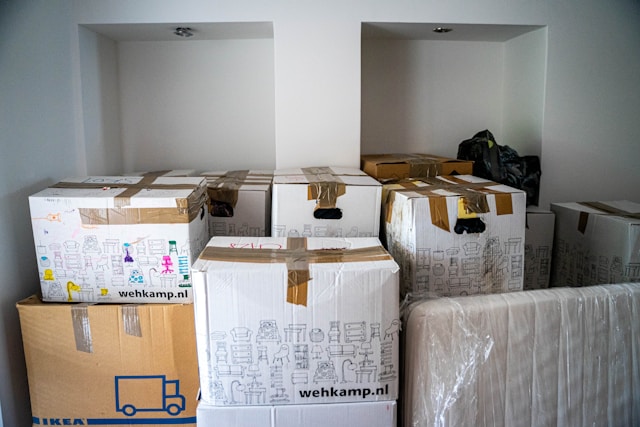- Change theme
How to Declutter with Purpose: The Psychology Behind Letting Go of Junk

For many people, junk removal is more than just a physical task—it’s an emotional one.
09:53 29 April 2025
For many people, junk removal is more than just a physical task—it’s an emotional one. Whether you’re sorting through an overflowing garage, a packed attic, or the cluttered corners of your apartment, getting rid of unused items often brings unexpected resistance.
You might hold onto a broken lamp because “it could be fixed,” or stack up old books you’ll probably never read again. These decisions aren’t about laziness—they’re deeply tied to how we think, feel, and even define our identity.
That’s why understanding the psychology of decluttering can make all the difference. When you recognize what’s really holding you back, letting go becomes a purposeful, even liberating act.
Why It’s So Hard to Let Go
Letting go of possessions can feel irrationally difficult, even when we know we no longer need them. There are a few reasons for this:
1. Emotional Attachment
Objects can represent memories, relationships, or milestones. A sweater from college, your kids’ old toys, or grandma’s teacups might not serve a practical purpose—but parting with them feels like discarding a part of your history.
2. The Sunk Cost Fallacy
You may hesitate to throw away something expensive, even if you haven’t used it in years. That resistance comes from the desire to justify past spending, known in behavioral economics as the “sunk cost fallacy.”
3. Fear of Future Need
“What if I need this one day?” is the classic line that keeps closets and garages packed. This fear is rooted in scarcity thinking—a belief that you might not be able to replace it later.
Understanding these thought patterns is the first step toward making smarter, more intentional decisions when it comes to clutter.
The Mental Benefits of Decluttering
Once you push past the emotional barriers, the mental health benefits of decluttering are immediate and lasting.
- Reduced anxiety: Clutter can subconsciously create stress, giving your brain more visual “inputs” to process.
- Improved focus: A cleaner space often leads to a clearer mind, making it easier to concentrate on daily tasks.
- Boosted mood: Letting go of things you no longer need can bring a sense of control and accomplishment.
This isn’t just anecdotal. Studies have shown that people who live in clean, organized environments report better overall well-being and lower stress levels.
Decluttering with Purpose: A Mindful Approach
The key to successful junk removal is intention. Rather than approaching it as a chore, reframe it as a process of creating space for your present and future—rather than clinging to your past.
Here are some strategies to declutter with purpose:
1. Start Small and Stay Consistent
Begin with one area: a drawer, a closet, or a shelf. Quick wins create momentum. Trying to tackle the entire house at once can lead to burnout or decision fatigue.
2. Use the “One-Year Rule”
If you haven’t used, worn, or thought about something in the past year, it’s probably time to part ways with it. This rule helps minimize the emotional overthinking that leads to “maybe” piles.
3. Ask Purpose-Based Questions
Instead of “Should I keep this?” try asking:
- Does this item serve a current purpose in my life?
- Would I buy this again today?
- Is this something I’m keeping out of guilt or obligation?
Shifting the question helps uncover the true value—or lack thereof—of an object.
4. Honor Sentimental Items in a New Way
For emotionally charged objects, consider alternatives to storage. Take photos of items you want to remember but no longer need physically. Create a digital memory book or display one meaningful piece instead of keeping the entire collection.
When It’s Time to Call in Help
Even with the best mindset and strategy, some projects are too large or too emotionally draining to handle alone. In those cases, professional junk hauling services can offer more than just muscle—they bring structure to a process that can feel overwhelming.
Companies like Junk B Gone provide homeowners and renters in the Seattle area with efficient, respectful assistance that helps move the process forward. It’s not just about removing items—it’s about removing stress.
In situations involving downsizing, moving, or major life transitions, junk removal becomes part of a larger healing and reorganizing process. When the clutter is gone, what’s left is clarity.
Seattle-Specific Tips for Responsible Decluttering
If you’re considering junk removal in Seattle, there are a few extra considerations:
- Recycling regulations: Seattle has robust recycling standards. Make sure your junk hauling plan includes proper sorting to keep recyclable items out of landfills.
- Donation opportunities: Many local charities accept gently used furniture, electronics, and clothing. Plan ahead to redirect usable items to people who need them.
- Weather and storage: The damp Pacific Northwest climate can damage items stored in garages or basements. Decluttering these areas helps prevent mold and long-term damage.
These local nuances are worth keeping in mind as you work through your junk hauling project.
A Final Word: Make Room for What Matters
Decluttering is never just about trash bags and storage bins. It’s about aligning your living space with your values, your goals, and the life you’re trying to build.
By understanding the psychology behind clutter—and by leaning into a purposeful, mindful process—you can transform the way you approach everything from your closet to your garage.
When you’re ready, professionals like Junk B Gone can help make that transformation smoother, faster, and far less stressful. And when the clutter is gone, what you gain is more than space—it’s freedom.
